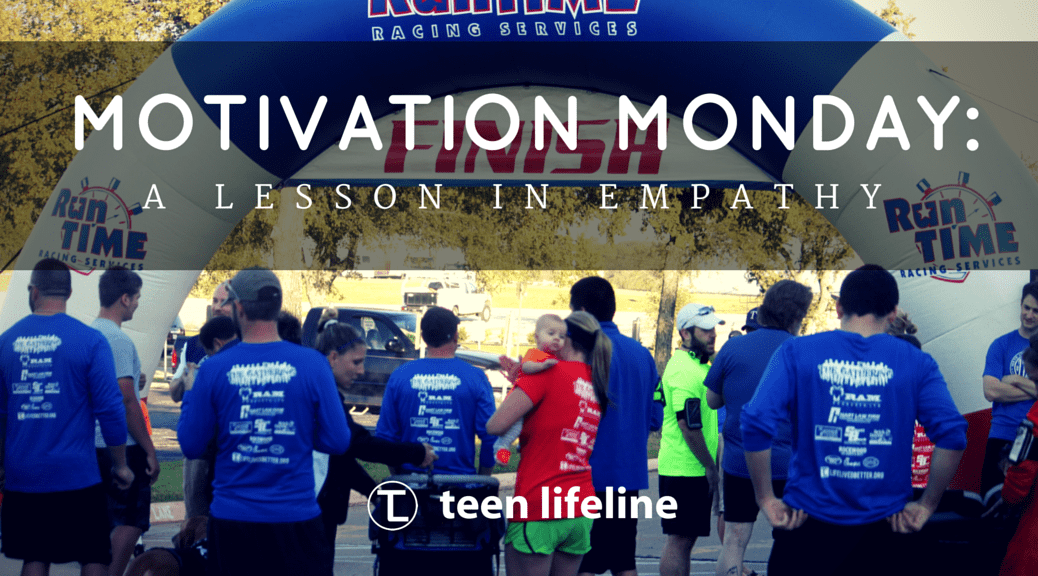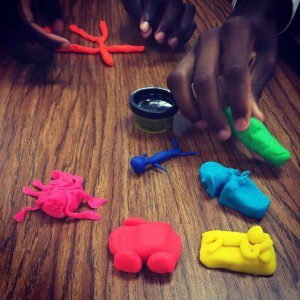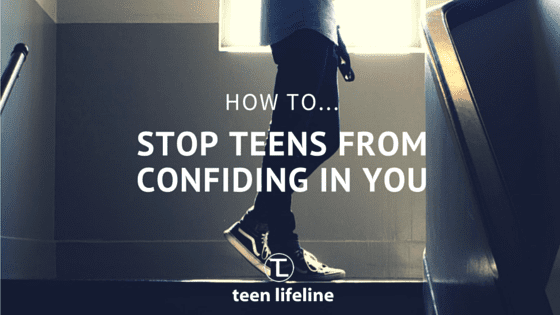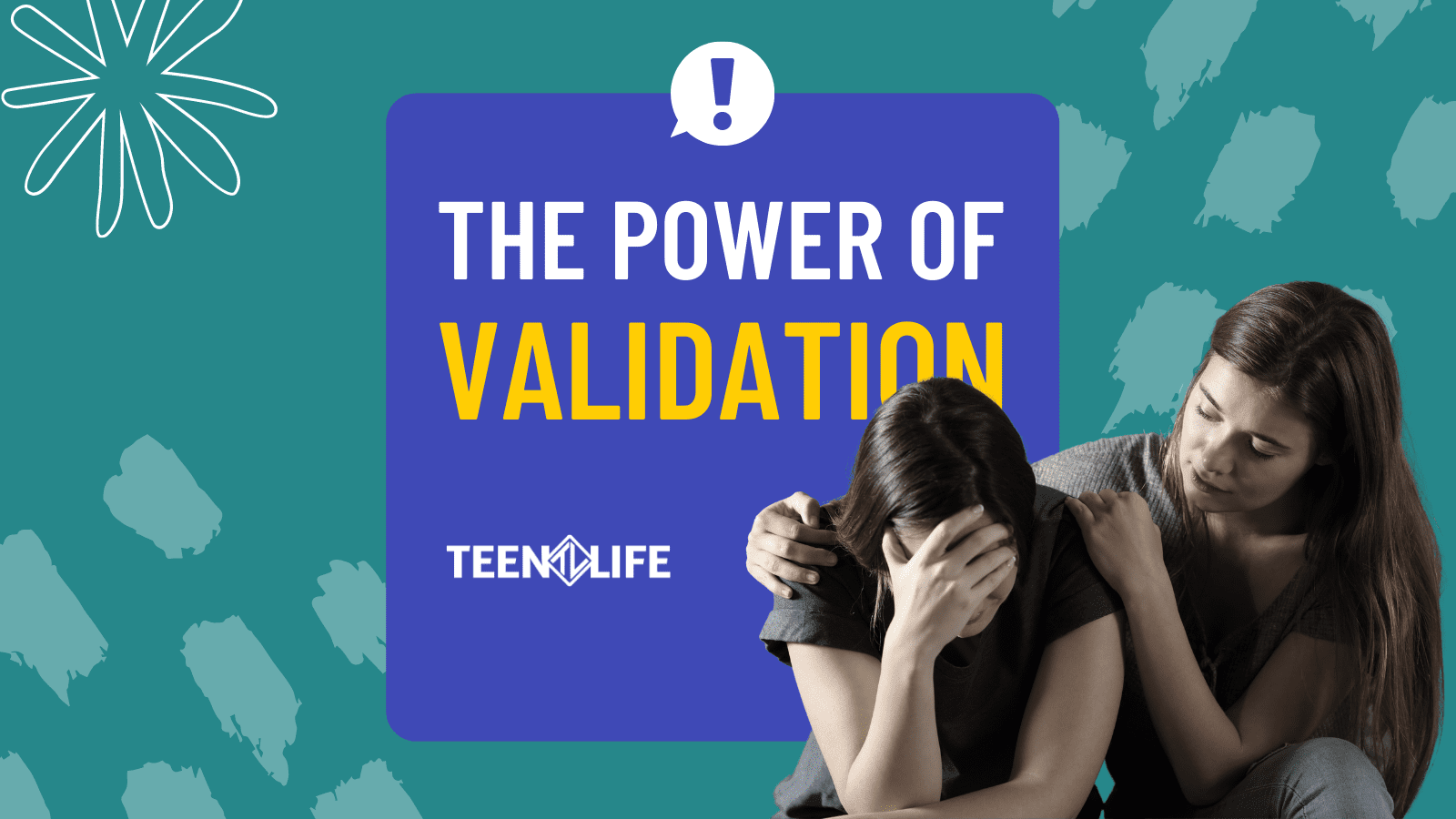
by Karlie Duke | Apr 14, 2016 | Parenting, Support Groups
The more I work with teenagers, the more evident is that they are their own worst enemy and biggest critic.
Check out this story from one of our facilitators, Josh Hardcastle, about a conversation that happened in his support group with teenage guys:
A couple of weeks ago, we were talking about the negative influences and negative voices in our lives. Some of the guys in the group spoke up and were talking about how when other people put them down, they believe it. They believe that they…
Are Lazy.
Are Stupid.
Won’t Succeed.
Are Slow.
Are Punks.
Can’t get anything right.
So then I threw out the question, “What if you didn’t believe them?”
I had remembered a line from a book I read that said something like, “The names that we embrace are the names that we become.” I shared with them some of the struggles with the names that I had been called in High School by a coach. After hearing it so many times, I began to believe that I was that name.
There was something about this whole conversation and group time that really clicked with them. I could actually see hope and strength starting to resonate with a few of them. They were sitting up straight and absolutely silent. Not because they didn’t know what to say, but because it looked like they were thinking about not believing they were these names that they had been called for so long.
Towards the end of the group time, one of the guys asked, “So does this work with me too? Because I put myself down more than anybody else.”
Man that broke my heart! But we were able to have a conversation as a group about what that looked like and how we can avoid embracing the negative names and voices we call ourselves. I closed out the group by asking, “What do you guys notice about everyone’s pages and what they heard from the important voices in their lives?” A few of them gave me the answers that most everybody had written down their family or best friends, but one of my quiet kids raised his hand and said, “Everyone has more than two important, positive voices who speak into their lives.”
I took it one step further and asked, “So what does that mean?” Another guy jumped in and said, “That we should be listening and focusing on the positive voices and ignoring the negative ones.”
Boom. Nailed it.
Teenagers are surrounded by all kinds of negative and critical voices, but these voices do not just come from outsiders. Sometimes, the worst thoughts are coming from inside their own heads.
So what can we do? How can we help encourage teenagers to think positively and be a better judge of their self-worth? I have a few suggestions for what we can do as parents, teachers, mentors and friends:
1. Ask questions that will allow them to brag.
Instead of bringing up that “B” on a test, or the fact that they were late getting home (…again), ask one of these questions: “What is one thing that you did really well today?” or “How did you help someone today?”
By asking these question, you are prompting their own brain to focus on the positive aspects of the day. You are telling them that they are capable of great things and you want to hear about the things that they are going well.
Let’s help train teens to engage in beneficial bragging! Bragging that fosters a good sense of self-worth and positive self-esteem.
2. Point out the little things.
Did your teen wash the dishes without being asked? Say, “THANK YOU!”
Resist the urge to say something like, “What’s wrong with you?! You never do the dishes without asking!” or “Finally! Now you’re doing the dishes every night for the rest of your life!”
I know this might be a silly example, but by encouraging the little things they do without adding a backhanded dig or sarcastic comment, they will also pay attention to the important role they can play!
Tell them when you are proud. Hang up that last report card on the fridge. Brag about the way they love on their siblings. Teenagers are necessary, helpful, hardworking and FUN – don’t forget that!
3. Encourage realistic goal-setting.
When I am hard on myself or engage in negative self-talk, it tends to be when I am disappointed in myself or feel like I haven’t reached the goal I set for myself. After a busy week, I am upset that the house is a little messy and that I didn’t cook every meal at home. I beat myself up when I miss one tiny detail on a big project, or find a typo in a blog post.
Goals are a great thing to have, but we should be realistic and not sweat over the little things! Encourage teenagers to set small goals. When they reach that goal, help them celebrate and especially if they don’t matter – forget about the tiny things that might not be perfect.
Perfection isn’t a realistic goal. But here are a few realistic goal examples for teenagers:
- Be on time to school in the morning – who cares if you forgot to brush your hair or ate a pop tart instead of a well-rounded, healthy breakfast?!
- Help with one thing around the house – start small by making the bed, or doing the dishes after dinner!
- Improve on the next test – don’t get upset if the next grade isn’t a perfect 100, but strive to do better than that last test!
Once you help them come up with, write down and spend time on their goals, don’t forget to celebrate when a goal is reached!
What do you think of these ideas? How else can we encourage teenagers to engage in positive self-talk?
Karlie Duke was in one of Teen Lifeline’s original support groups and now is our Communications Director. She is passionate about encouraging students to live better stories.

by Karlie Duke | Mar 10, 2016 | Dating, Entertainment, Parenting
How do we combat the false image of romance portrayed in the media we consume?
Before you freak out about the title of this blog, give me a chance to explain.
I am a hopeless romantic. My favorite movie is still Disney’s Beauty and the Beast. I love the stories where the princess falls in love and lives happily ever after. When it comes to books, I read anything and everything with a love story – Nicholas Sparks, The Twilight Saga, The Selection Series, anything by Karen Kingsbury. I have iron-clad opinions on whether Katniss should end up with Gale or Peeta. I cried my way through The Notebook and even read the less-popular sequel.
I admit that I am a faithful watcher of The Bachelor and The Bachelorette. I can tell you the names of the couples that are still together, watched all their TV weddings and even follow a few of my favorites on social media. I love the romantic dates, seeing who will get a rose each week, and watching the guys pick out the perfect engagement ring. I live for that final episode when the man gets down on one knee, and you see their love story come together for the perfect finale. Have I mentioned that I love all things romance?
But “porn,” really?? “Porn” can be a taboo word for our culture. Yes, we know it is out there, but we are not always willing to talk about it. Why would we want to bring up such an awkward topic with our teenagers? They don’t struggle with pornography addiction…and especially not my daughter!
Think again. According to research done by Covenant Eyes, 90% of boys and 60% of girls are exposed to pornography before the age of 18. That is your teenager. They are growing up in a culture where they can access pornography 24/7 on their television, laptop, or on the tiny phone that is attached to their hand. Pornography is a problem for adolescents and an issue that we do not ignore, but this blog is not about that type of pornography – naked pictures, sexting, magazines and x-rated movies (we will save that for another day).
For today, I want to speak mainly to the girls out there. Whether or not you connect with my story (or know someone else that does), I believe that our culture encourages girls and women to fall in love with these fictional men and their perfect relationships where arguments and morning breath do not exist.
In their book, Dateable: Are You? Are They?, Justin Lookadoo and Hayley DiMarco write:
“This is the #1 thing that distorts a girl’s view of reality, men and relationships. Maybe you haven’t heard it called female porn. Maybe you know it by the softer, more acceptable terms of “chick flicks” and romance novels…Your porn isn’t sexual, it’s romantic. But it gives you a warped view of men…if you have a man in your life, you begin to look at him in light of Mr. Perfect, and he can’t compare. He’ll never be as beautiful or romantic as the movie star with all the makeup and good lighting…It creates men who rescue you from out-of control buses and shower you with rooms full of roses. They fly you off to Paris for the weekend and save you from the evil villain bent on destroying the world. These men don’t exist…you are imposing an impossible set of demands on your guy.”
I am not saying that we need to ban romance movies or books – what would I do in my free time?
But I do have a few suggestions for how we can combat this culture where girls are looking for a Prince Charming who will never come, and where guys feel like they can never live up to the romantic standard set by Hollywood.
1. Discuss realistic expectations.
When you talk to teenagers about the latest romantic comedy, make sure that they know that those are unrealistic expectations. While it is not unrealistic to expect a man to open your car door, hold your hand or treat you like you deserve to be treated, men (just like women) are imperfect. They aren’t going to bring home flowers every day. Their lines aren’t written by a producer who makes a living by making you cry. They probably aren’t going to stand outside of your window with a boombox to win your affection. They sometimes smell, they don’t always enjoy everything you do and they probably don’t have the bank account to support your love of diamonds or to fly you across the world for an exotic date.
It is okay to give a reality check. Encourage them to write down what they are actually looking for in their “perfect mate.” Focus on qualities and characteristics, not necessarily on their physical appearance or ability to give great gifts.
2. Set Realistic Boundaries
You know your teenager best. If you see them falling into this romantic porn trap, set a few boundaries. Maybe they need to take a break from Nicholas Sparks. Perhaps you set a boundary where they have to sit down and have a discussion with you after they watch or read anything in that romance genre. Encourage them to find new, age-appropriate TV shows, books, or movies to invest their time in – try watching The Voice or Fixer Upper. Protect their hearts by limiting their exposure to romantically-saturated forms of entertainment. Maybe it is time to start a new hobby, like knitting!
3. Model Realistic Relationships
Real relationships exist, so don’t hide the realities of marriage from your teenager. You are doing a disservice to your children if you pretend that your marriage is as perfect as the ones we see on-screen. It’s okay for them to see you argue every now and then. Start bragging about the little things that your spouse does. Show that romance can come in the form of a well-timed kiss on the cheek, coming home to clean dishes, or a text asking how your day was. Surround your teenagers with healthy relationships, in and out of the home, where they can see how marriages work on a day-to-day basis.
What do you think of this idea of female, or romantic, porn? Do you have any other ideas for how we can protect and encourage teenagers?
Director of Communications
Karlie was in one of Teen Life’s original support groups and now is passionate about encouraging students to live better stories. She has gained experience working with teenagers through work, volunteer, and personal opportunities.

by Karlie Duke | Feb 18, 2016 | Parenting, Resources
How to harness the power of your words when speaking of teens.
Have you ever had that one person that you just really don’t like? There isn’t always good reason, but when their name is brought up, you inwardly roll your eyes and try your best to hide those negative impulses? That’s not just me…right?
Recently, I realized that I had developed an incredibly strong opinion about a person without even knowing them personally – let’s call him Max. Through other people’s opinions, I began to see Max as selfish, moody and disrespectful. What’s even worse is that I didn’t realize my bias until someone else’s opinion began to change my mind!
Once again, without any personal interaction, I created an opinion in my head based on how someone talked about Max. However, this new influencer had the opposite effect. Where I used to roll my eyes when his name was brought up, suddenly, I found myself defending his decisions and giving him the benefit of the doubt when he made mistakes. After spending time with one of Max’s best friends, I stopped treating Max like he had personally wronged me (which he hadn’t), I began to see him as a likable, funny person who needed a little grace, just like the rest of us.
All because of one opinion.
You might be asking – what did they say? How can a few words change your opinion so quickly? And that’s just it – it really didn’t take much. His friend didn’t bribe me or make up stories about his heroic efforts on the weekends, they simply spoke kindly about Max. In every word, every description and even through their tone, I could tell that they genuinely believed the best about Max. There was a reason that they were friends, and it made me want to be his friend, too!
Michael Hyatt just wrote a blog about the importance of affirming your spouse, and after my experience with Max, I am a firm believer in the power of your words and their ability to shape someone’s opinion.
If it is important to lift up, encourage and affirm your spouse, it should be just as important to do the same for your kids (especially your teenagers)!
Here are a few reasons why it is crucial to speak positively about teens:
Your words will shape the opinions of others.
As parents, teachers, youth ministers, coaches and mentors, we need to check what words and stories are coming out of our mouths. Especially when you are talking to people who do not personally know that teenager, there is no excuse for gossiping and spreading negative opinions about a student. When all you do is vent to friends or other parents, you are only giving them a glimpse into the most negative aspects of that teen.
How are they supposed to overcome that difficult teacher or the task of making good friends when everyone already has negative, preconceived notions about who they are and their priorities. Give them a chance to make friends or enemies based on their own interactions, instead of the thoughtless words of an angry, frustrated adult. Choose to say kind and positive things more often than telling negative stories.
Give your friends, their teachers, and other adults a reason to like your teenager.
Your words will shape your opinion.
When you say positive things about that teenager, you will start to notice more positive things to say. Instead of jumping to the worst possible conclusion, tell others how much they are trying. Tell that story about how sweet they were when their little sister was crying (you don’t have to mention that they caused the crying in the first place). Focus on the things they are great at – whether that is school, band, being a good teammate, or helping around the house.
If you get in the habit of bragging on your kids, students and players, you might find that you have more reasons to brag on them than you originally thought. Just like your words can change the opinions of others, they can also influence your own patience and treatment of teens.
Give yourself a reason to like that teenager.
Your words will shape their opinion.
I will never forget the times that my parents bragged about me to their friends, or the time I overheard my youth minster telling someone he wanted his daughter to grow up and be like me. I can remember thinking, “If they think that of me, I need to keep going and prove them right!”
You know that warm, fuzzy feeling when you know someone is proud of you? Can you imagine what teenagers would act like if they got that feeling often – weekly, even daily?
Tell that teenager that you are proud of them. Write it in a note. Say it out loud. Tell everyone you know how great they are. Use your words to empower and encourage your teenager to act, think and live better.
Give teenagers a reason to like themselves.
Take this next week and consciously look for positive things to say about the teenagers in your life. If a negative thought or word comes up, immediately think of two positive things to replace it with.
Let us know how this experiment goes and if it changed the way you or others fell about teens. Help combat the negativity that is too often involved with these teenage years.
More Resources You Might Like

by Karlie Duke | Feb 1, 2016 | Anxiety, Events, Support Groups
We are less than 9 weeks away from our 7th annual #TL5K! In order to celebrate our biggest fundraiser of the year and bring awareness to what actually happens through Teen Lifeline Support Groups, we are going to release a bonus blog once a week until our 5K on April 2nd! These blogs will be a small glimpse into the stories of teenagers we work with and some of the facilitators who make these groups possible.
We are passionate about these groups because we get to see the faces, hear the stories and speak truth every single week. If you are just now getting introduced to Teen Lifeline or are wanting to know more about how we are helping teenagers live life better, these stories over the next 9 weeks are going to be a great way to take a behind-the-scenes peek at our non-profit.
I often get asked about our support groups and what a successful group looks like. You have no idea how tricky that question is…what does the perfect family look like? What are the characteristics of a perfect classroom? These questions are impossible to answer because…it depends.
It depends on the situation, the group of students, the needs of the group and the end-goal. Every single one of my groups is different, but one is not necessarily more successful than the others; however, there is one group in particular that comes to mind when I think of facilitating these support groups.
Last year, I was able to lead a middle school support group at an alternative campus (these are students who have been moved from there campus for one disciplinary reason or another). This being the first group I had ever led, I was nervous and a little (or a lot) anxious. I wondered how I would relate to these young trouble makers, if they would actually talk to me and how I would get them to connect with each other when they were more worried about video games and which boy liked them that week. Through the course of a school year, I saw over 36 middle schoolers in group, some that stayed with me for several months and some who were only there a couple of weeks.
In one particular g roup, we were talking about stress (by playing with play-doh, of course!), and one of the girls brought up her situation living in foster care. She talked about the stress of moving through different foster homes and new “siblings” that she was trying to get along with.
roup, we were talking about stress (by playing with play-doh, of course!), and one of the girls brought up her situation living in foster care. She talked about the stress of moving through different foster homes and new “siblings” that she was trying to get along with.
In this same group, I had a boy who sweet, brilliant, and very shy. He rarely spoke up in group, but as his peer talked about her fears and anxiety about home life, he stopped her and asked, “Are you okay? Do they ever hurt you?” He cut right to he chase (which made me a little nervous), but showed empathy in a way that was surprising for a middle schooler. Without me saying a word, these two started a conversation about getting help if she didn’t feel safe and how to deal with difficult family members. Even though I was the group facilitator, these two guided our group through discussion around dealing with stress and how to positively react when you are put in negative situations.
If I had to pick one thing, that would be my favorite characteristic of a successful group – when they reach out and encourage one another. Finding a connecting point with peers is huge, especially if you feel like you are on an island all by yourself. Our groups empower teenagers to seek out these relationships and let them know that they are not the only ones dealing with junk.
I am so thankful that I work for a ministry that allows these types of conversations to happen. A ministry that equips students to deal with stressful situations, encourages teens to open up and seek relationships, and empowers them to live their best life possible.
Karlie Duke was in one of Teen Lifeline’s original support groups and now is our Communications Director. She has lead support groups on two different campuses over the past two years.

by Karlie Duke | Jan 28, 2016 | Parenting, Resources, Support Groups
One of my favorite parts of my job is getting to encourage teenagers to have meaningful relationships with adults. We talk about who they are close to and who they can go to for help. I love encouraging them to find adults that they can confide in and who will speak truth into their lives.
Unfortunately, when we talk about parents, teachers, and other adults, students often say something along the lines of, “I can never tell them anything because…(fill in the blank).”
Some of this can be attributed to those teenage years when many students want to separate themselves from adults as much as possible. However, there are also many adults who are acting (probably unintentionally) in a way that insures teenagers will never talk to them about anything serious/important.
Here are a few ways that you can make sure teenagers never confide in you:
Tell them that they are just being dramatic.
Teens have a flair for the dramatic – we know this. However, when they are sharing something important and personal, that is not the time to point out those dramatic tendencies.
If they are sharing feelings of depression or thoughts of suicide, always take that seriously. First, make them feel validated in their feelings, and then you can ask more questions to determine what the next step should be. I’m sure you would rather be on the safe side of believing them and getting help, rather than blowing it off and having to get help after something bad has already happened.
Be dramatic when they tell you something.
While you can’t tell them that they are being dramatic, you also cannot be dramatic in return. I have had many teens (especially guys) tell me that they don’t share things with their parents because they freak out, cry, ground them or “make them go to church and confess.” (A real student told me that).
I know it can be upsetting if your child tells you that they are pregnant or failing or on drugs or depressed, but you must remain shock proof in front of them! Later when you are alone, you can break down, but how are they supposed to trust you to help them if you can’t even handle what they are telling you?
Betray their confidence.
Hear me out on this – there is a difference between asking a professional, a minister or a good friend for help and gossiping to your friends about what a teen is going through.
If it is a matter of safety (they are hurting themselves or someone else, or someone is hurting them), then you need to report that conversation or get help. However, I once had a student tell me that after they spoke to a teacher in confidence, he overheard that teacher laughing about it with a few other teachers. I can guarantee you that he never chose to share personal information with that teacher again.
Don’t believe them.
As adults, sometimes it is easier to avoid the issue or pretend like they are lying rather than deal with the hard truth of what is going on.
Earlier this year, a teacher pulled me into a room with a high school girl who was already getting help from the district but needed someone to listen – and because I happened to be around, that person got to be me!
Sitting across from this girl who I knew nothing about, I told her that I just wanted to listen – without judgment or a miraculous answer to fix all of her problems. And then, I starting asking questions.
What is going on? How are things at home? How is your relationship with your mom?
And she started to open up! After only a few minutes, I discovered that her stepfather had sexually abused her. While the school was aware of this and taking the necessary steps to protect her, I got to ask about her heart and the state of her family. Unfortunately, she told me that she had shared this abuse with her mom, but her mom immediately took the stepdad’s side and discredited her story.
Through more questions, I learned that this high school girl was dealing with much more than past abuse – she was battling depression and having somewhat of an identity crisis – but she was very clear that she would never talk to her mom about anything like this again.
Typically when a teenager tells you something personal and important, what they need most is for you to believe them. They need you to listen and offer your encouragement that you will help them through whatever is going on – don’t take that for granted!
It can be hard to gain a teenager’s trust, but if you break it, it is nearly impossible to gain that trust back.
Be someone that a teenager can trust.
Listen.
Don’t judge or speak before you completely hear them out.
You would probably be surprised what I can get a teen to tell me in a 45-minute group. But this shouldn’t be surprising because they should be able to tell you the same things!
I am begging you, stop giving teenagers an excuse to stay closed off. Stop doing the things I’ve mentioned above and be an adult they can count on.
When this happens, come back and share your stories with us! They need more adults like you!
Check out the Stay Calm, Don’t Panic! Podcast episode called “Don’t Panic About Talking to Your Teen”
Karlie Duke was in one of Teen Lifeline’s original support groups and now is our Communications Director. She is passionate about encouraging students to live better stories.










 roup, we were talking about stress (by playing with play-doh, of course!), and one of the girls brought up her situation living in foster care. She talked about the stress of moving through different foster homes and new “siblings” that she was trying to get along with.
roup, we were talking about stress (by playing with play-doh, of course!), and one of the girls brought up her situation living in foster care. She talked about the stress of moving through different foster homes and new “siblings” that she was trying to get along with.